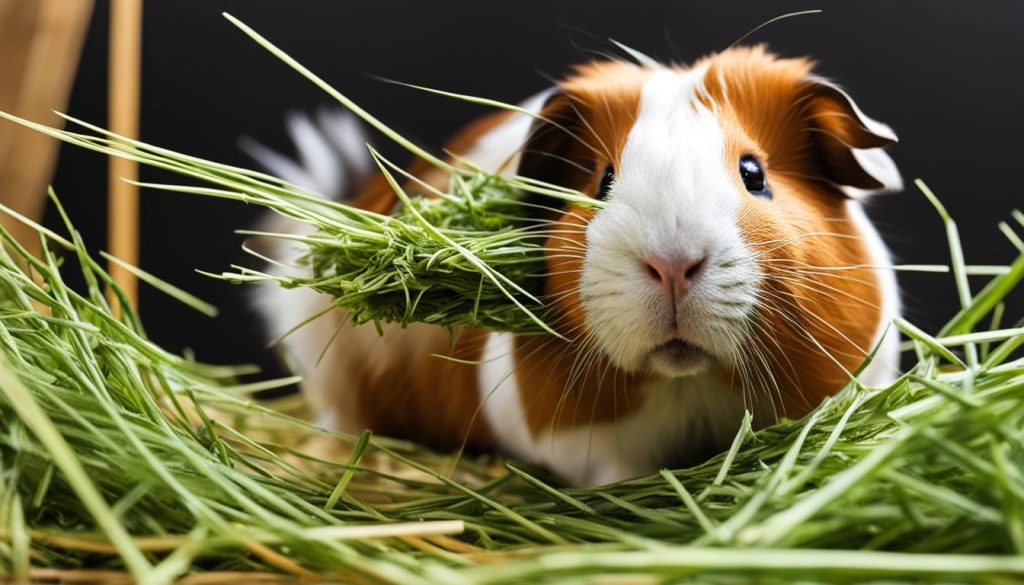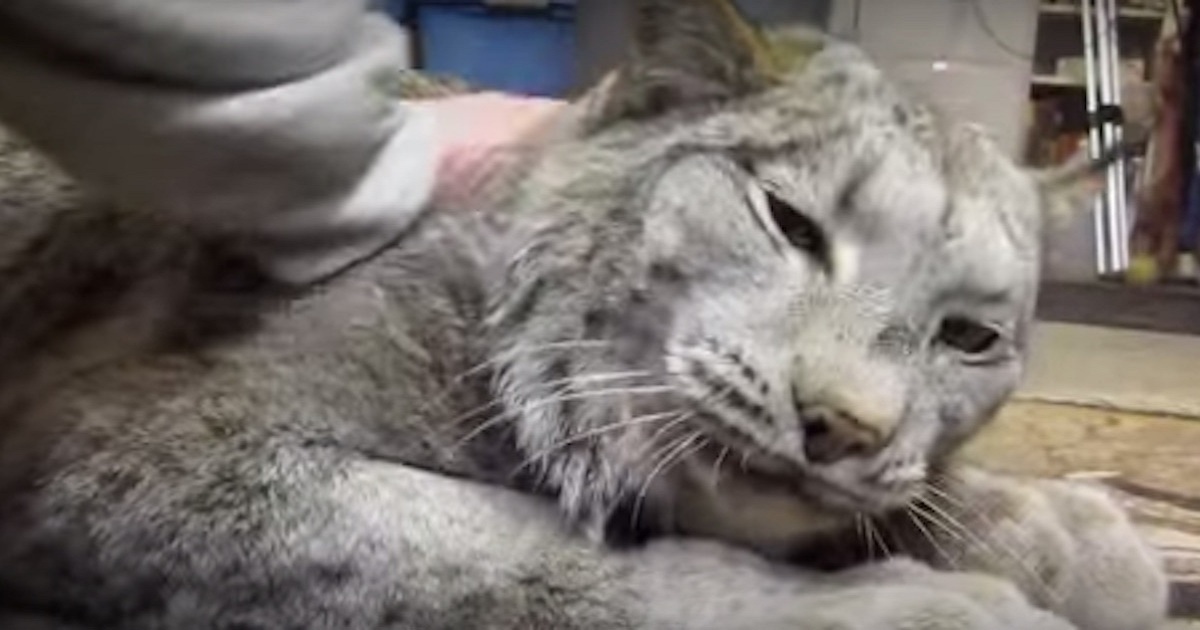Guinea pigs are small mammals that originate from the grasslands of South America. They are commonly kept as pets and have distinct dietary needs. One question that often arises is whether guinea pigs can eat chocolate. It’s important to note that chocolate is toxic to guinea pigs and should never be fed to them. Chocolate contains theobromine, which is harmful to guinea pigs and can lead to serious health issues, including digestive problems, seizures, and even death. It’s always best to stick to a guinea pig’s natural diet to ensure their health and well-being.
Can Guinea Pigs Eat Chocolate? Definitely not!
- Guinea pigs should never be fed chocolate as it is toxic to them.
- Theobromine in chocolate can cause serious health issues in guinea pigs.
- Stick to a guinea pig’s natural diet to ensure their health and well-being.
- Consult with a veterinarian for proper guinea pig nutrition.
- Always prioritize the safety and welfare of your guinea pig.
The Origins and History of Guinea Pigs
Guinea pigs, also known as cavies, have a fascinating history that dates back to their origins in the Andes Mountains of South America. These small rodents were first brought to Europe by Spanish, Dutch, and English traders in the 1500s. At that time, they quickly captured the hearts of the upper classes and even royalty, including Queen Elizabeth I. Since then, guinea pigs have become beloved pets around the world.
Throughout history, guinea pigs have been cherished for their charming personalities and gentle nature. Their small size and ease of care made them popular pets for people of all walks of life. They were often kept as companions in households, bringing joy to families with their playful antics and sociable nature.
In 1889, the National Cavy Club was established, further solidifying the popularity of guinea pigs as pets. This organization promoted responsible breeding and care of guinea pigs, ensuring their well-being and benefiting their overall health. The club’s efforts led to increased knowledge and understanding of guinea pigs, making it easier for pet owners to provide the best care possible for their furry friends.
The Evolution of Guinea Pigs as Pets
Over the years, guinea pigs have evolved from being primarily kept for practical purposes, such as food or medical experiments, to being cherished as family pets. Today, they are recognized for their role in providing companionship and bringing joy to households around the world. Their adorable appearance, gentle demeanor, and the ability to form strong bonds with their caregivers have made guinea pigs a popular choice for pet owners of all ages.
As we delve into the various aspects of guinea pig care in this article, it’s important to remember the rich history and origins of these wonderful creatures. Understanding their background and historical significance can deepen our appreciation for them as pets and enhance the overall experience of caring for them.
The Lifespan and Communication of Guinea Pigs
Guinea pigs have a lifespan ranging from four to eight years with proper care and nutrition. While individual guinea pigs may live longer or shorter lives, it’s important to provide them with a healthy and enriching environment to maximize their lifespan. The oldest recorded guinea pig lived to be 14 years and 10 months old, a testament to the impact of good care and attention.
Communication is an essential aspect of guinea pig behavior. They use a variety of sounds to express their emotions and communicate with others. Some common sounds include purring, which signifies contentment, and wheeking, a high-pitched sound used to express excitement or anticipation. Guinea pigs also make chirping, chattering, and hissing sounds, each with its own meaning. By understanding and recognizing these sounds, guinea pig owners can better interpret their pet’s needs and desires.
Additionally, guinea pigs communicate through body language. They may raise their fur, arch their backs, or stamp their feet to express dominance or aggression. They may also exhibit submissive behaviors such as crouching or hiding to avoid conflict. Understanding these non-verbal cues is crucial in maintaining a harmonious guinea pig community or recognizing signs of stress or discomfort in a single pet.
The Importance of Socialization
Guinea pigs are highly social animals and thrive when they have companionship. Keeping at least two guinea pigs together is recommended to prevent loneliness and promote their natural behaviors. When introducing guinea pigs to each other, it’s important to do so carefully to avoid conflicts. Male guinea pigs should be paired with neutered females or another male from the same litter, while females can also be paired with neutered males. Providing guinea pigs with appropriate companionship ensures their happiness, reduces stress, and overall enhances their well-being.
Overall, understanding the lifespan and communication of guinea pigs is essential for their care. By providing a suitable environment, recognizing their sounds and body language, and facilitating socialization, guinea pig owners can ensure that their furry friends lead happy and fulfilling lives.
The Diet of Guinea Pigs
When it comes to guinea pig care, their diet plays a crucial role in ensuring their health and well-being. Guinea pigs have specific dietary needs that should be met to keep them happy and thriving. A balanced diet for guinea pigs consists of a few key elements.
The foundation of a guinea pig’s diet should be high-quality feeding hay. Feeding hay provides essential fiber that aids in their digestion and helps maintain their dental health. Good options for feeding hay include Timothy hay, meadow hay, and orchard grass hay. It’s important to provide fresh and dry hay daily to ensure a steady supply for your guinea pigs.
In addition to feeding hay, guinea pigs require a daily dose of vitamin C in their diet. Unlike humans and some other animals, guinea pigs cannot produce vitamin C on their own. Therefore, it’s crucial to provide them with vitamin C-rich foods such as guinea pig nuggets or pellets specifically formulated for their dietary needs. Fresh fruits and vegetables like bell peppers, kale, and broccoli can also be added to their diet to boost their vitamin C intake.
The Role of Water and Avoiding Harmful Foods
Water is another crucial element in a guinea pig’s diet. Clean and fresh water should always be available to them, either through a water bottle or a water bowl. It’s important to regularly check and refill their water source to ensure they stay properly hydrated.
While it’s essential to provide a balanced diet, there are certain foods that should be avoided as they can be harmful to guinea pigs. One such food is chocolate, which contains theobromine and is toxic to guinea pigs. Other foods to avoid include onions, garlic, and foods high in sugar or fat. It’s always best to consult with a veterinarian or do thorough research to ensure you are providing the right foods for your guinea pig’s diet.

By understanding and meeting the dietary needs of guinea pigs, you can provide them with a healthy and balanced diet that promotes their overall well-being. Remember to provide feeding hay, vitamin C-rich foods, and fresh water as the foundation of their diet, while avoiding harmful foods such as chocolate. With proper nutrition, your guinea pigs can enjoy a happy and healthy life.
Housing and Care for Guinea Pigs
Providing suitable housing and care for guinea pigs is crucial to ensure their comfort and well-being. Whether kept indoors or outdoors, guinea pigs require a spacious and predator-proof enclosure to roam and explore. It’s important to note that traditional small hutches are not sufficient and should be attached to a larger run to give guinea pigs ample room to move around. This promotes their natural behaviors and overall physical and mental health.
When it comes to bedding, options such as soft and fragrant meadow hay or vet bedding should be used to create a clean and dry environment for guinea pigs. This helps prevent any discomfort or respiratory issues that may arise from damp or dirty bedding. Regular cleaning of their housing and providing fresh bedding is essential to keep them happy and healthy.
Additionally, guinea pigs require regular veterinary check-ups to ensure they are in good health. A knowledgeable and experienced veterinarian can provide guidance on appropriate nutrition, dental health, and preventive care measures for your guinea pigs. It’s also important to interact and socialize with your guinea pigs daily to keep them mentally stimulated and provide companionship, as they are social animals.
Remember to always prioritize the well-being of your guinea pigs by providing them with suitable housing, clean bedding, regular veterinary care, and social interaction. By doing so, you are ensuring a happy and healthy life for your beloved pets.
The Importance of Companionship for Guinea Pigs
Guinea pigs are social animals that thrive when they have companionship. They are happiest when they have other guinea pigs to interact with and rely on. So, if you’re considering getting a guinea pig as a pet, it’s important to understand the importance of companionship for their overall well-being.
When guinea pigs have companions, they engage in various social behaviors like grooming, playing, and vocalizing. These interactions help them feel secure and reduce stress. The companionship also provides them with opportunities for exercise and mental stimulation. It’s a delight to watch guinea pigs interact and establish bonds with each other.
When introducing guinea pigs to each other, it’s crucial to do so slowly and carefully. Guinea pigs can be territorial, and introducing them too quickly can lead to conflicts. It’s best to start with a neutral territory and gradually introduce them under supervision. Pairing a male guinea pig with a neutered female or another male from the same litter usually works well. Females can also be paired with neutered males. With proper introductions, guinea pigs can form strong bonds and enjoy a fulfilling companionship.
Guinea Pig Socialization
Socialization is an essential aspect of guinea pig care. By spending time with your guinea pigs daily, you can help them acclimate to human interaction. Guinea pigs are naturally wary of new experiences, so it’s important to approach them gently and provide positive reinforcement with treats or favorite vegetables.
Handling your guinea pigs with care and respect will help build trust and strengthen your bond. Regular socialization not only benefits your guinea pigs but also allows you to observe their health and behavior closely. It’s an opportunity to check for any signs of illness or injury and ensure they are happy and content in their environment.
Remember, providing guinea pigs with the appropriate companionship and socialization is vital to their happiness and overall well-being. They are social creatures that thrive when they have the company of their fellow guinea pigs. By understanding their social needs and providing the right environment, you can enjoy the delightful and rewarding experience of guinea pig companionship.
The Benefits and Risks of Guinea Pig Ownership
Guinea pigs make amazing pets and bring numerous benefits to their owners. One of the primary advantages of owning a guinea pig is their adorable and interactive nature. These small furry creatures can form strong bonds with their caregivers, providing companionship and emotional support. Interacting with a guinea pig can bring joy and laughter, making them a wonderful addition to any household.
Another benefit of guinea pig ownership is the educational aspect. Caring for a guinea pig teaches responsibility and empathy, especially for children. It provides an opportunity to learn about animal behavior, nutrition, and routine healthcare. Guinea pigs also serve as excellent companions, especially for individuals who may be living alone or facing emotional challenges.
However, it’s important to acknowledge the potential risks and responsibilities that come with owning a guinea pig. Providing proper care is essential to their well-being. This includes ensuring a balanced diet, suitable housing, and regular veterinary check-ups. Additionally, owners need to be aware of potential hazards, such as toxic foods and environmental dangers, to keep their guinea pigs safe and healthy. It’s crucial to educate oneself about guinea pig care and commit to providing the necessary time and resources.
Conclusion
It is crucial to prioritize the health and well-being of our guinea pigs by providing them with proper care. One important aspect of guinea pig care is to never feed them chocolate, as it is toxic to their sensitive systems. Instead, we should focus on offering them a balanced diet consisting of high-quality feeding hay and vitamin C-rich foods to prevent deficiency diseases.
Moreover, it is vital to provide guinea pigs with suitable housing that allows them to move and explore. Spacious enclosures, attached to larger runs, offer the necessary space for their well-being. Additionally, maintaining a clean and dry environment with the use of soft bedding such as meadow hay or vet bedding is essential. Regular veterinary check-ups will also ensure that any potential health issues are addressed promptly.
Another crucial aspect of guinea pig care is understanding their communication and socialization needs. Guinea pigs are social animals and benefit from companionship. Keeping at least two guinea pigs together prevents loneliness and allows them to engage in natural behaviors. By carefully introducing guinea pigs to each other and providing appropriate companionship, we can contribute to their happiness and overall well-being.
By following these guidelines and taking the necessary steps to keep guinea pigs healthy, we can enjoy the many benefits of these adorable pets. Guinea pigs not only provide companionship and emotional support but also bring joy and happiness into our lives. Let’s prioritize their care and ensure that they live long, healthy, and happy lives as part of our families.
FAQ
Can guinea pigs eat chocolate?
No, chocolate is toxic to guinea pigs and should never be fed to them. It contains theobromine, which can lead to serious health issues.
Where do guinea pigs originate from?
Guinea pigs originate from the grasslands of South America, specifically the Andes Mountains.
How long do guinea pigs live?
With proper care and nutrition, guinea pigs can live between four and eight years. The oldest recorded guinea pig lived to be 14 years and 10 months old.
What should guinea pigs eat?
Guinea pigs should mainly eat high-quality feeding hay and receive a daily dose of vitamin C. Foods like dandelion leaves and parsley can provide essential nutrients.
How should guinea pigs be housed?
Guinea pigs should be housed in a spacious and predator-proof enclosure. Traditional small hutches should be attached to a larger run for them to move and explore.
Do guinea pigs need companions?
Yes, guinea pigs are social animals and should be kept with at least one companion to prevent loneliness and promote their natural behaviors.
What are the benefits of owning guinea pigs?
Guinea pigs are adorable, interactive, and can form strong bonds with their owners. They can also provide emotional support and companionship.
What are the risks of owning guinea pigs?
Guinea pigs require proper care and regular veterinary check-ups. Owners should also be aware of potential hazards, such as toxic foods and environmental dangers.






